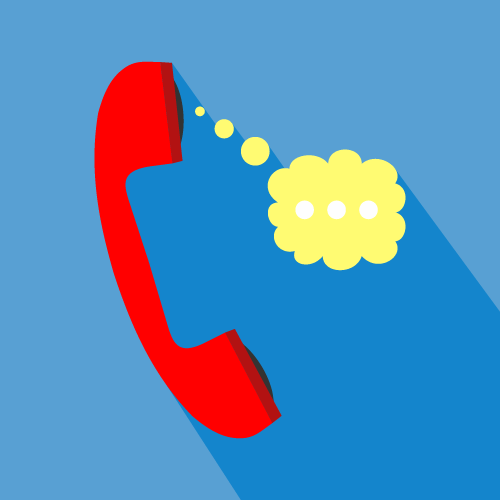
On Facebook recently, a colleague reported being the victim of a phone hijacking. You might recognize the feeling. A potential client calls to ask about editing services and then spends the better part of an hour telling her story with barely a breath between sentences, leaving you with no room to speak. There it is. One hour you’ll never get back.
Interrupt the caller! her colleagues replied with variations on advice and empathy. And yet, for many editors, interruptions are as rude and cringe-worthy as the endless oration that begs for interruption in the first place.
What follows, based on a lifetime of experience with stream of consciousness talkers (some of whom are family members), is my response to every editor’s need to deal with someone who hasn’t figured out the important distinction between a conversation and a monologue (a.k.a. a phone hijacking).*
Ten ways to interrupt a caller
A good interruption starts with an interrupting signal, usually one word, followed by a statement (not a question; if you ask a question, you lose the conversational ball).
- Okay. I think I’ve got enough background. Do you have a few minutes to listen?
- Sam. Sam. Sam. [the caller’s name, repeated until they stop talking] I assume you called to find out what I can do to help. One thing I can do is …
- Wow! You have a lot of passion for this project. But before I learn any more about you, you need to learn about me.
- Whoa. Spoiler alert! I don’t want to hear about your story until you’ve heard about my services.
- Sam? [asked as if you’re wondering if they’re still there] I’m going to tell you about my services and then I’m going to ask you three questions. After that, we’ll have to use email so that we can both manage our time.
- So. Now you probably want to hear all about me and my services.
- Wait. We’re getting ahead of ourselves here. First let me decide if I can help you. Here’s what I do for authors …
- Excuse me. I think we’re getting off track. You called to ask about my services.
- The sound of silence. Utter silence. No encouraging listening noises. Nothing. Make them wonder if you’re still there. They usually manage to stop themselves.
- Set an alarm that will ring loudly after 10 (or two) minutes. That will give you the opportunity to say “That’s my reminder to get back to my clients. Let me send you my details so that you can send me your manuscript for an estimate.”
And finally, avoid setting the monologue in motion by asking them a question that’s too open-ended, such as: Can you tell me about your project?
Instead, help the caller focus with specific questions: Can you summarize the story in three sentences? What’s the manuscript word count? If they ignore the question, ask it again, to keep them on track. Creative people often follow the little rabbit trails of their own stories. Some of them are just looking for someone to put up with hearing their story.
The 11th response: Hang up!
Sometimes a polite push is the only way to protect your time when a caller just won’t stop talking. And there’s my 11th suggestion: I’m sorry. I don’t have time for this. Good luck with your story. Then hang up. Yes, you might just have hung up the phone on J.K. Rowling. But what are the chances, really?
*This post is a gently edited reprint of Virginia’s response to a Facebook post, adapted with the original poster’s permission.
___
Previous post from Virginia Durksen: Revisiting the Inner Editor: December Is the Cruellest Month
The Editors’ Weekly is the official blog of Editors Canada. Contact us.
Discover more from The Editors' Weekly
Subscribe to get the latest posts to your email.
